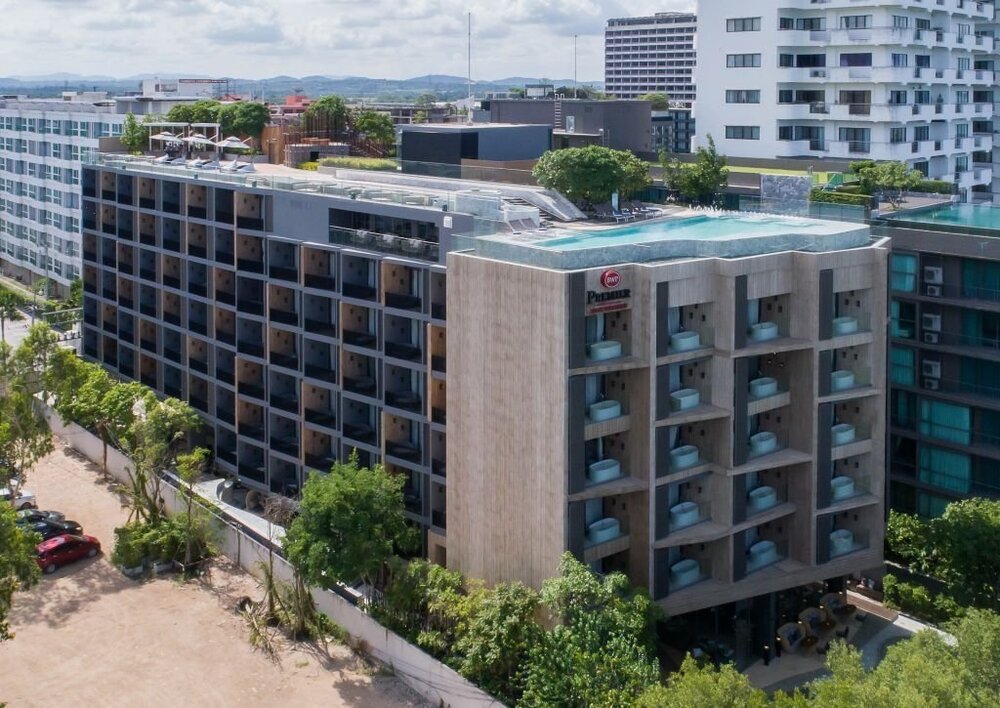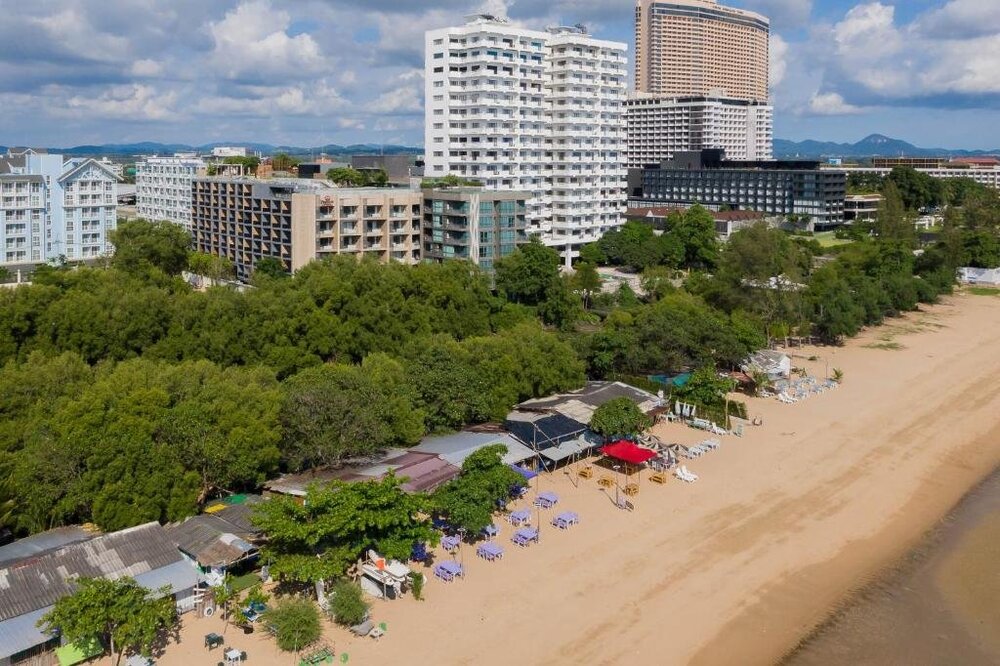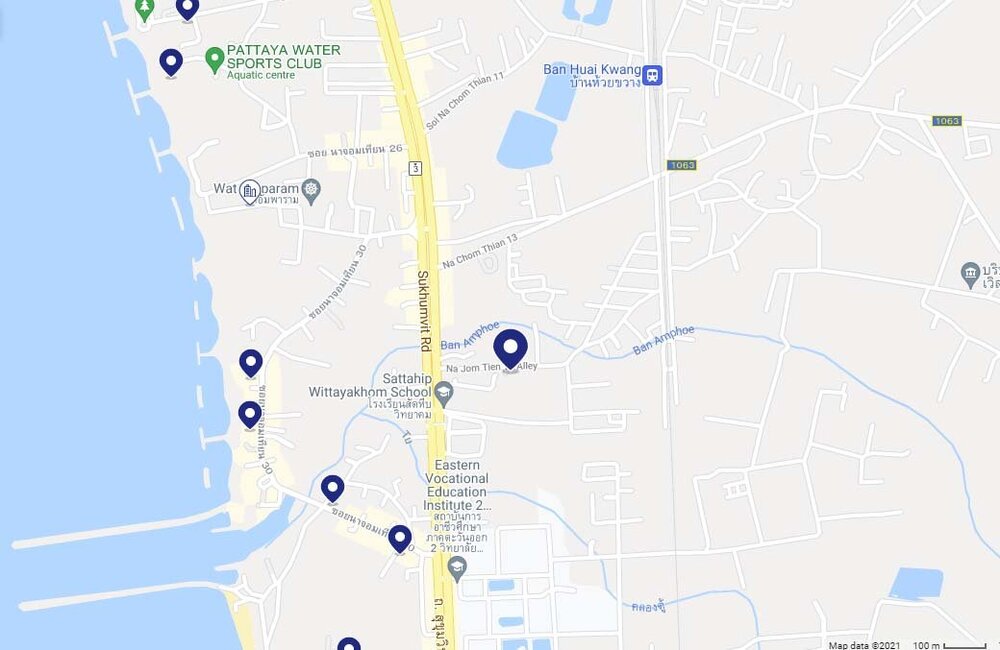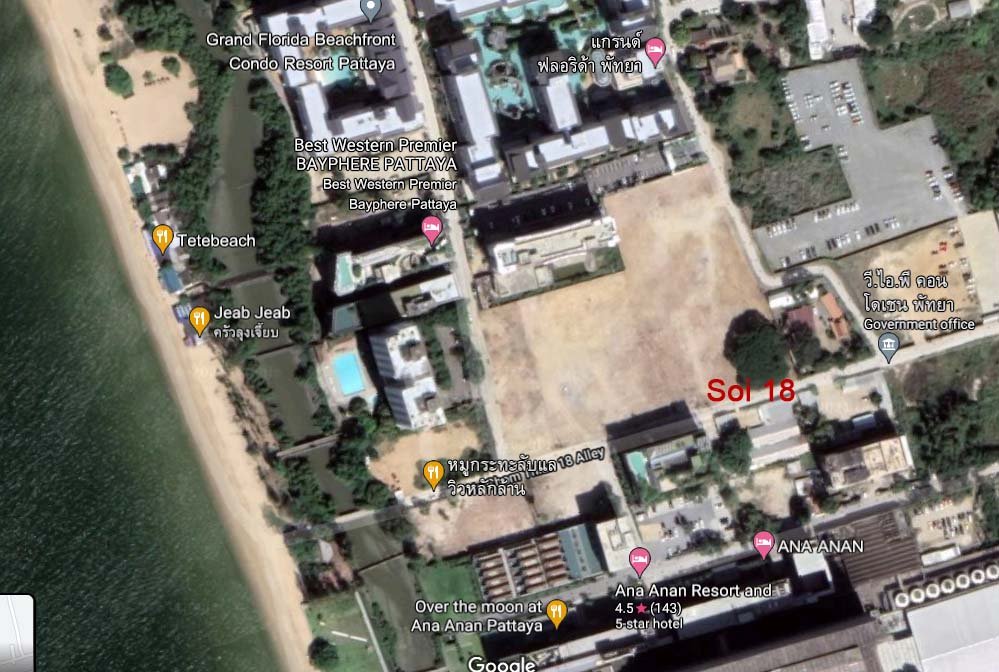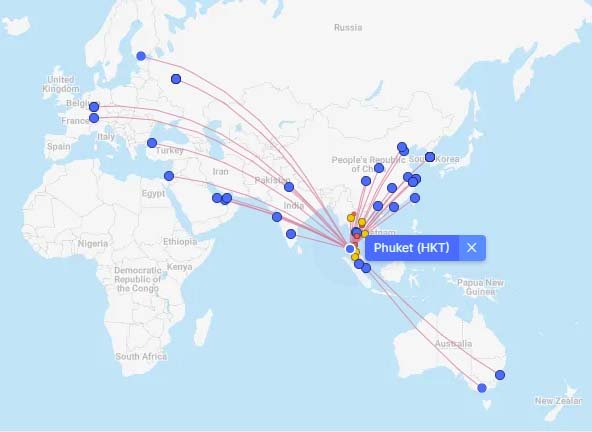-
Posts
1,468 -
Joined
-
Last visited
-
Days Won
16
Content Type
Profiles
Forums
Events
Everything posted by macaroni21
-
A month or two ago, I read an article about the business model of onlyfans.com. Nothing really new there, but apparently the lockdowns from Covid have accelerated its business many times. Purveyors of in-the-flesh pleasures pivoted to selling virtual interactions instead. I am curious if Thai guys, many of whom must be badly out of work for months and months, have also tried to sell themselves virtually. I see no discussion anywhere about this (but then I haven't really looked hard) so my impression is that they have not. If so, is it for want of trying or might there be technical obstacles? Or do you think there's really no market for online interactions with Thai lads?
-
Was it only me or did anyone else sense that the original post was tongue-in-cheek?
-
Oh well, there goes the "exclusively for men" promise, rainbow-coloured floors notwithstanding.
-
Chanced upong this Youtube video from March 2020, but I don't know when the event was. What was interesting was that the place was apparently in Hua Hin -- maybe there's new life there after all -- and the video title said (according to Google Translate at least) "Fitness club exclusively for men Lemannclub". Despite the "exlcusively" promise, the event was disappointingly heteronormative.
-

Infections may be “3-4 times higher” than government-declared total
macaroni21 replied to a topic in Gay Thailand
A bit of a screamer: "The Public Health Ministry said on Sunday more than 600 medical workers who received two doses of China's Sinovac vaccine have been infected with Covid-19, as authorities weigh giving booster doses to raise immunity." Fortunately, this Bangkok Post story sobered up and added, "Of the 677,348 medical personnel who received two doses of Sinovac, 618 -- less than 1% -- became infected, ministry data from April 1 to July 10 showed. A nurse has died and another medical worker is in critical condition." To have 1 percent infected after vaccination isn't all that surprising, but the headline isn't going to help persuade those who are already vaccine-hesitant. -
I can't predict what the future will hold -- will the bars even return??? -- but buttholes there definitely were in the past, even the recent past. Many members on this board might remember the act where a usually-effeminate dancer would go prancing around the stage pulling a string out of her lower orifice. The string bore plastic flowers (fluorescent pink, as I remember) at quite close intervals, about 10 - 15 cm apart. Dancing or jerking to the beat of the music, she would weave her way between the gogo poles so that the string, eventually some 8 to 10 metres long, would stretch across the poles like some sort of Do-not-cross police cordon. I think it was the old Dreamboys on Soi Twilight that had this show quite regularly. i can't help a touch a nostalgia as I type this, even though it was no titillation for me when it was performed. Cringe might be a better description of my reaction. That having been said, I don't suppose, from your question, you were hoping to see a reprise of something like this, were you?
-
Almost surely you were in the original Twilight Bar of Soi Twilight, though it could have been in the bar's subsequent phase -- the early days of Hotmale in the same location. I remember those days fondly too.
-
It's only one week since the Phuket Sandbox trial began and there couldn't have been many visitors yet. But they've already found one infected tourist. However, the most significant part about this story is that as soon as they identified this case, "Other tourists in the same group had been placed in 14-day quarantine". So this adds another risk. All it takes is for one positive test from a member of the group -- does this also mean everyone else who arrived on the same flight? -- and the rest are slammed into 14 days' quarantine. No different from arriving in any other part of the country. Another interesting tidbit from the story is the statement that "70% of the population has now received two doses of Covid-19 vaccine", presumably Sinovac. https://www.bangkokpost.com/thailand/general/2144879/first-covid-infected-tourist-found-in-phuket-sandbox
-

Infections may be “3-4 times higher” than government-declared total
macaroni21 replied to a topic in Gay Thailand
Allowing that this 20 percent positivity rate is coming from one hospital's testing and may not be representative of data from testing centres nationwide, it is indeed very concerning and supports the estimate that the true number of infections is a few mutliples higher. I doubt if Thailand's testing programme is comprehensive -- I can't find the data on total testing numbers in the short time I have. Here is an explanation of why high positivity numbers generally indicate under-reporting of cases. "This also makes sense intuitively: if you test everyone, then the positvity rate will be very low, and you will catch every case. But if testing is not widely available, then you will catch only the severe cases, resulting in a higher positivity rate. This phenomenon is sometimes referred to as preferential testing." Source: https://covid19-projections.com/estimating-true-infections-revisited/ The World Health Organisation uses 5% as a bench-mark. A positivity rate above that should be taken to indicate that true infection numbers are higher than reported. Of course it is possible that at any one time, in a really terrible epidemic ( e.g. Black Death), more than 5% would be infected at any one time, and even if one tested 100% of the population, the positivity rate will be a figure higher than 5%. Yet, that result would not be an under-report becuase you had tested everyone. However, in most epidemics, including this one, it's really a rolling infection, and even in the worst situations, it is unlikely that more than 5% of people would be infected at any one time. So if test results come in at 20% positive, it suggests that we should test more for a better grasp of the situation. The only way out of this epidemic is vaccination, but as others have noted, the roll-out is relatively slow in Thailand, especially when compared against the greater transmissibility of the Delta variant. Bad news just came in. Even the best performing vaccines (Pfizer, Moderna) are demonstrating only 64% effectiveness aganst infection from Delta. The silver lining is that even if infected, the vaccine will protect against serious illness from Delta. Here, it gives 94% protection. "TEL AVIV—Data from Israel suggest Pfizer Inc.’s vaccine is less effective at protecting against infections caused by the Delta variant of Covid-19 but retains its potency to prevent severe illness from the highly contagious strain. The vaccine protected 64% of inoculated people from infection during an outbreak of the Delta variant, down from 94% before, according to Israel’s Health Ministry. It was 94% effective at preventing severe illness in the same period, compared with 97% before, the ministry said. An Israeli official said Tuesday the health ministry findings released a day earlier were preliminary and based on data collected from June 6 through early July." Source: Wall Street Journal https://www.wsj.com/articles/pfizers-covid-19-vaccine-is-less-effective-against-delta-variant-israeli-data-show-11625572796 -

Expats are included in Thailand’s vaccination plan
macaroni21 replied to TotallyOz's topic in Gay Thailand
Then again, let's not even assume that the signed "contract" was between Thailand and the vaccine manufacturer. I shall entertain the possibility that it could have been between the ministry and some local representative of the vaccine manufacturer specifying no details of price or delivery date (mere minor details, you understand), but setting down the most important aspect of any purchase: the percentage commission to be diverted to certain bigwigs. -
Thanks for the replies. I was in Phnom Penh last year and the pickings were slim, though good enough for a few days. If, as z909 suggests, Siem Reap offers even less of such "cultural entertainment", it may prove disappointing. As for the ruins, I was there eons ago before the recnt popularity and surge of tourists. I even visited a few of the ones further away. They're certainly fantastic, and if there's a time to revisit them, it might just be now before the surges of tourists come back.
-

Expats are included in Thailand’s vaccination plan
macaroni21 replied to TotallyOz's topic in Gay Thailand
Let me see if I understand this. 1. "the head of the Department of Disease Control signed the contract yesterday", even though 2. "the vaccine has yet to be approved by Thailand’s Food and Drug Administration", and 3. "the price is not yet agreed and the DDC has a month to negotiate pricing and other conditions with the manufacturer," and 4. "delivery will be some time this year, but when exactly is unclear" What sort of contract might that be? As for the Johnson and Johnson vaccine, 5. "Anutin said the government has also received approval from the Office of the Attorney-General to purchase supplies of the Johnson & Johnson single-dose vaccine." Why is the AG involved? -
Might just consider this if Thailand doesn't open up soon. Would those more knowledgeable be able to advise, since I'm no fan of cultural shows, what other forms of entertainment might be available on Siem Reap evenings? I'm not expecting it to be like Bangkok or Pattaya, but a small selection of bars with take-out, or massage...? I've heard of a sauna though I cannot recall the name.
-
It's at the arse end of Jomtien. As someone who has wasted time looking for a hotel which I had booked, but had been given misleading information and worse, misleading location, I am always on the lookout for more of such nonsense. Looking at the pictures at the booking.com site, I began to suspect that there was something misleading about the topmost photo at the FTN news site. This picture (copied below) gives the impression, if one is not careful, that the hotel is on the beach. However, the cars parked in the sandy-coloured area at the left of the photo were a give-away. Though people do park their cars on the sand, a comparison of the above picture with another one on the booking.com site (shown below) indicates that it is the side of the building with balcony bathtubs that face the sea. The sandy-coloured area is an undeveloped patch of land which no doubt will soon be built up, providing great views (of solid wall or other people's windows) for those rooms on the right side of the above photo. The second picture clearly shows that the hotel does not have a beach front, though it also shows that it does not stand as far back as booking.com's Google Map location suggests. In fact, the booking.com map pointer is plain wrong, off by some 3 kilometres!!! That pointer locates the hotel at Na Jomtien Soi 15, when the booking.com page itself says the address is Na Jomtien Soi 18. This kind of carelessness annoys me. So, I look for Na Jomtien Soi 18 on Google Maps proper, and lo and behold, it has Best Western Bayphere (how does one pronounce that without saying "bay-fear") much much closer to soi 18. Why booking.com doesn't link to the correct map is a mystery. This location is at least consistent with the second photo above. The above satelite picture now indicates this hotel to be only 100m or so from the beach, across a swampy river which one hopes isn't fetid. All that said and done, it's still at the arse end of Jomtien.
-

Expats are included in Thailand’s vaccination plan
macaroni21 replied to TotallyOz's topic in Gay Thailand
For the benefit of us not living in Thailand, could you explain what a pink ID card is? Is it a form of permanent residency? Does it allow the card holder to work (i.e. paid employment)? It seems to me that you've lived a while in Thailand and have not needed this card until now -- and even then, as z909 says, it should have had no bearing on your vaccine entitlement -- so whatever this pink confection is, it has as little practical value as a pink tutu. -

Expats are included in Thailand’s vaccination plan
macaroni21 replied to TotallyOz's topic in Gay Thailand
Last December when the cluster broke out in Samut Sakhon, I saw a news report that said the government was extending tests to all potentially exposed persons regardless of immigration status. In that fishery port, many workers were Burmese. While I cannot fully remember the details now, the outline of the news story was that people needed only present a phone number to identify themselves (and to obtain test results) and that no questions would be asked about nationality or visa status. Whether the people at risk were trustful of such government statements would have been a totally different matter, of course. Furthermore, it is one thing for top officials to announce politices, it is quite another for the lower ranks to carry them out in the way that is intended. All it takes is for a few overzealous swabbers and testers to demand to see papers for news to spread in the community that the government's assurances are not to be trusted. In other words, it is not hard to design policy to include overstayers, etc in testing and vaccinnation programmes; it can be very hard to realise the plan. -
So.... is the "129,000 international arrivals" to be believed at all? We know the forward projections are mostly wishul thinking. Might past "data" also be wishful thinking? Reminds me of one toyboy who, in the space of two days, told me (a) he had been to university, (b) he had not gone beyond high school, and (c) he was from Lao and "there are no schools in Lao", though I'll grant that maybe (c) is not mutually exclusive from (a) or (b).
-
I wondered where the "129,000 international tourists" were from. That's about 1,400 a day. This led me to wonder which cities still have "direct" flights to Phuket. I found https://www.flightconnections.com/flights-to-phuket-hkt and from there, this map dated 14 May 2021. Chinese cities stand out, but the three most worrying routes are the three from In dia. That saiid, Thailand banned arrivals from India late April, so why are there still flights?
-
In recent memory, I've only been to Nakarat once and it was a disaster. As I recall, they were mostly Vietnamese boys, very straight-lookng, who knew virtually nothing about massage or giving pleasure. I reckon they must have returned to Vietnam after Covid shut massage establishments down for a while. Are the staff now all Thai, I wonder? Gee, I can't wait to get back to find out! But it still looks like a long, long wait.
-
Seeing the first few scenes of this video, I thought it was made pre-Covid. The clubs were packed and no one had face masks. Then at the 24th second someone (a waiter?) in a mask walks by. Then we see the doormen of Jupiter who had a mask too. Finally, at 3 min 37 secs we see a date on the wall - 11 April 2021 - indicating that it's a very recent video. At 8:00, there is a huge sign in the background saying "Face masks required", but no one in the foreground has one. The bars on Soi 4 and on Soi Patpong 2 are clearly still in business, so that's a relief. Something to hope for when travel becomes possible (by the end of the year?). Lucky Boys may be the exception though; it looks closed. However, seeing the heaving crowds in the dance clubs, all maskless, the Covid situation may get much worse before it gets better.
-
I'm not suggesting that Thailand should have a blanket ban on all arrivals. When we consider that most people will only have mild symptoms even if infected, we must be careful not to make the cure (the meltdown of the economy) worse than the disease. It may be sensible to have differentiated entry controls by country depending on risk, but if so, then one should be data-driven when assessing that risk. To say that just because WHO labels China as high-risk, even as WHO declares the whole world as high-risk, is enough to single out China for a ban, seems way too simplistic. It doesn't make sense to ban all Chinese visitors when that country had 35 confirmed and suspected new cases in the latest report, while visitors from France (with 780 new cases in the last 24 hours) and from Spain (with 1,266 new cases), have looser entry requirements. As an incidence rate (i.e. compared to population), France and Spain are way more risky than China right now. Yet, as far as I can discern (not always easy because of changing and conflicting information), visitors from France and Spain are subject only to registering on an app and self-monitoring as they wander around Thailand. From https://www.channelnewsasia.com/news/asia/covid19-thailand-coronavirus-releases-detailed-measures-12538698 Don't be too quick to defend the Thai government. Anutin may be the biggest of the buffoons, but that doesn't mean the rest should be beyond criticism either. In short, I am saying Thailand is way behind the curve and the overall quality of decision-making leaves a lot to be desired.
-
If a country wants to calibrate its border control by country, then rely on the data available. As quick as Thailand is to impose entry restrictions, it should be equally quick to lift them when numbers change. If not, one cam imagine that visitors from France, Italy or the US may remained restricted long after cases have diminished in those places.
-
And it also says "Global level - Very high". So why single out any country at all for calibrated measures. Thailand (and all other countries) might as well shut down travel from the rest of the world. WHO will say "very high" because it has declared Covid-19 a pandemic.
-
Quite apart from the confusing and contradictory statements emanating from various Thai government officials, my sense is that few of them are even taking advice from epidemiology and medical experts or even referring to data. They are just letting their xenophobia play out. The ban on visa-on-arrival for Chinese tourists is a good case study. From this Bangkok Post story (https://www.bangkokpost.com/learning/easy/1847669/tourism-minister-against-scrapping-visas-on-arrival) Yet, we have Thailand begging China for supplies. Thailand needs to stock up in preparation for a larger number of cases which can only be expected. From https://www.bangkokpost.com/thailand/general/1878380/doctors-issue-stage-3-warning It's silly to antagonise a huge market like China and still be asking them for help. It's not even as if China is anymore a disease threat. The World Health Organisation has daily updates on the number of new cases per country. In the case of China, per province. You can see the data for 14 March here: https://www.who.int/docs/default-source/coronaviruse/situation-reports/20200314-sitrep-54-covid-19.pdf?sfvrsn=dcd46351_2 In the last 24 hours China had only 18 confirmed cases and 17 suspected cases. Out of a 1.4 billion population, such numbers do not warrant a ban on travel. China might have been a major source of infection a month ago, but no more. I would much rather they let in Chinese tourists to help keep the bars and massage parlours alive while we sit in our countries cooling our heels, than to have the whole sector collapse for lack of customers. The madness even gets to leaving a dead body on the sidewalk for more than six hours. https://www.bangkokpost.com/thailand/general/1878280/virus-fears-keep-rescuers-from-handling-body-of-chinese-man Is Fujian really a province with high coronavirus risk? Look again at the WHO data. In the last 24 hours, zero confirmed cases; zero suspected cases.




